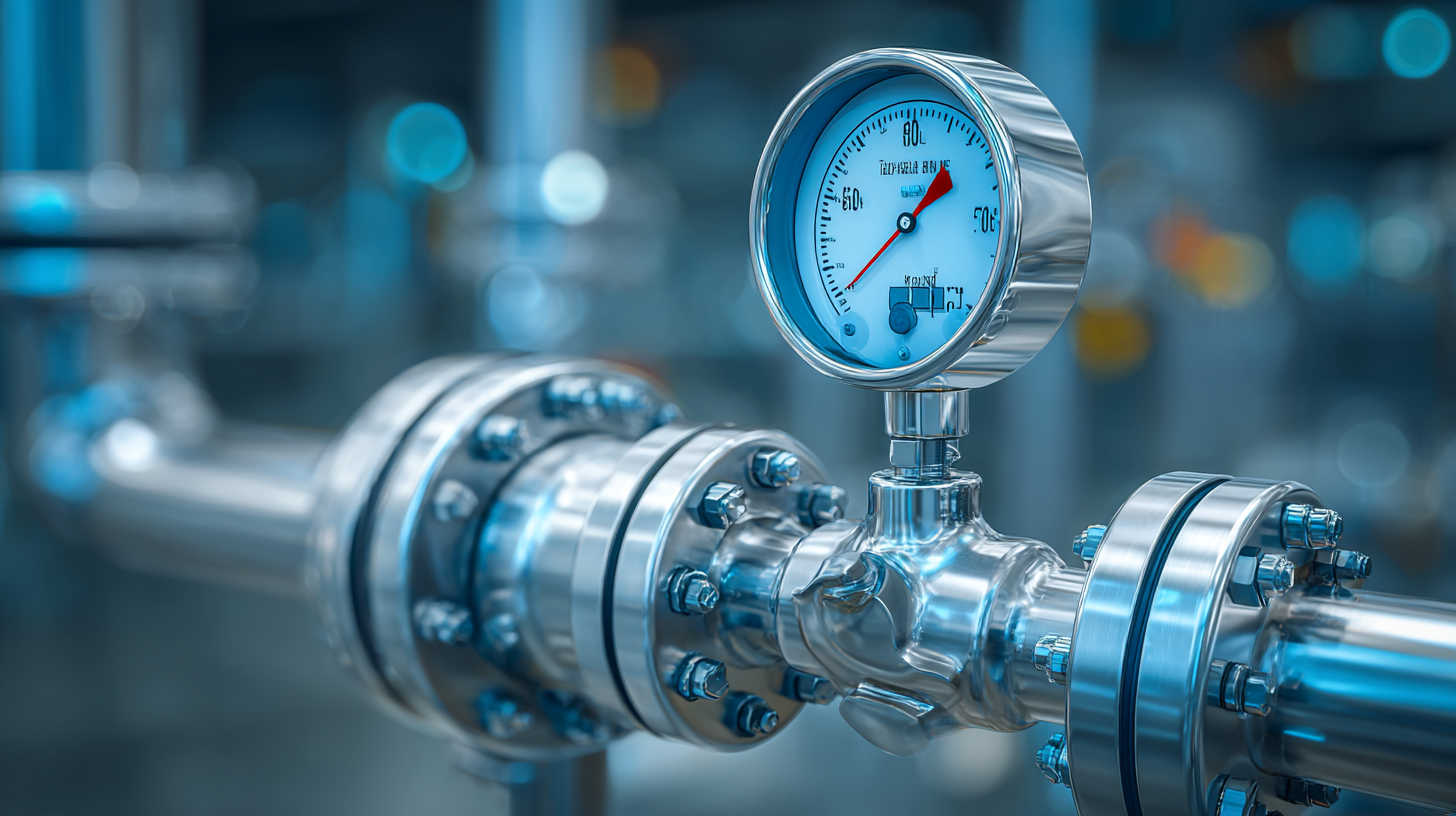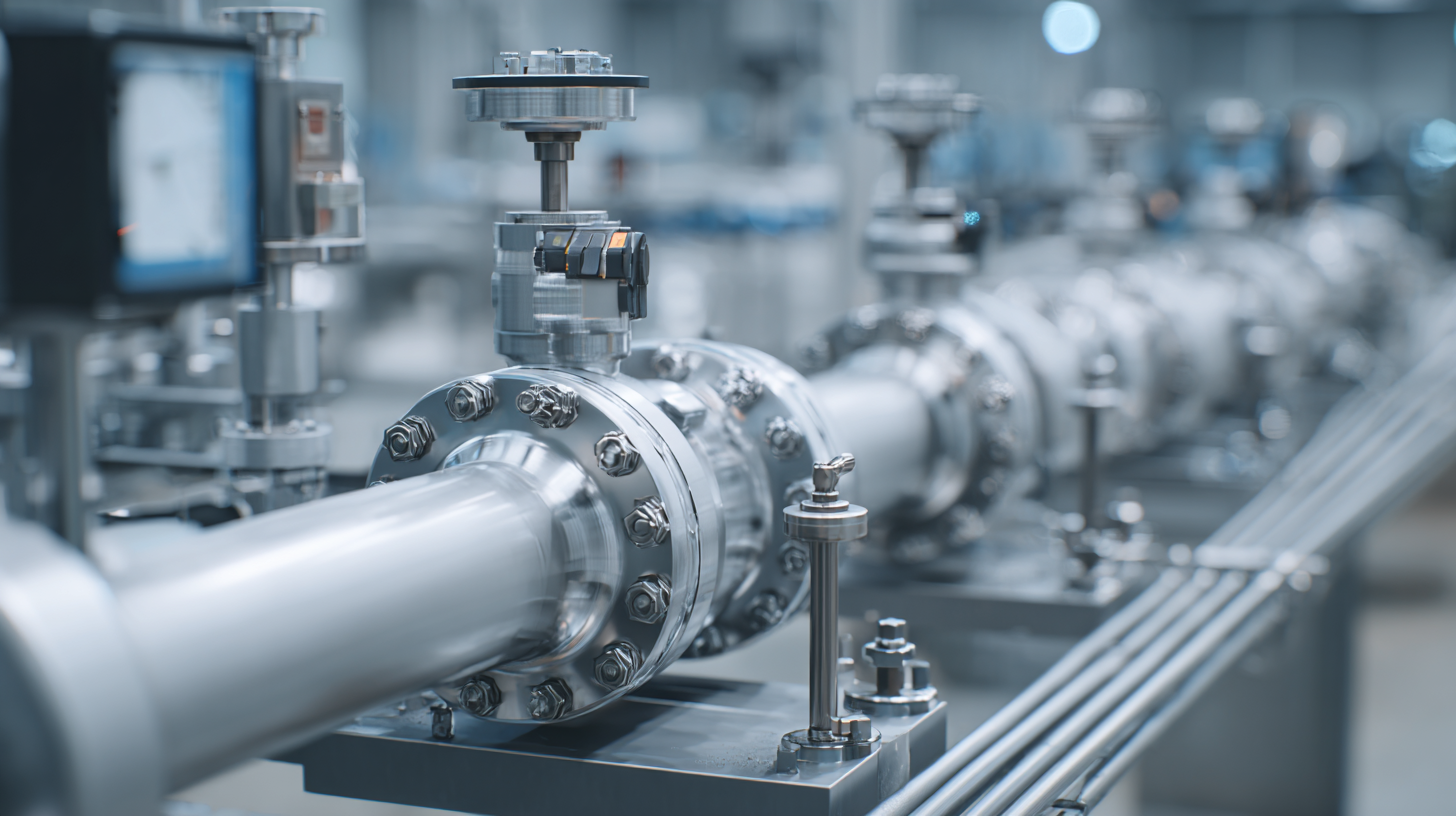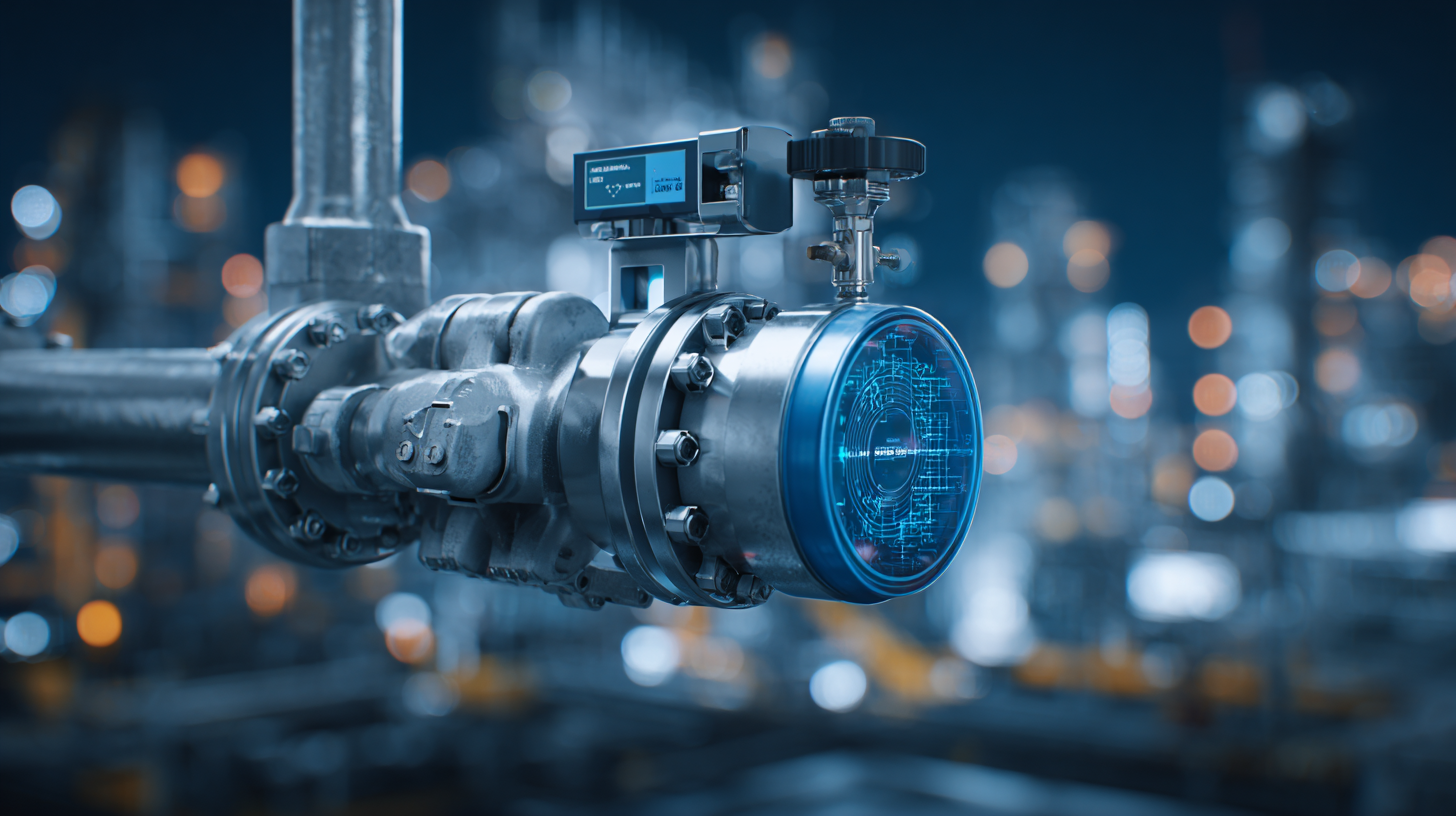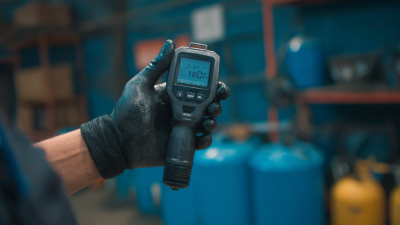The Future of Flow Meters Technology Trends and Their Impact on Industrial Efficiency
In recent years, the landscape of industrial measurement has been profoundly transformed by the advancements in flow meter technology. These devices, which are essential for quantifying the flow of liquids and gases in various industrial processes, have significantly enhanced operational efficiency and accuracy. With the emergence of digital technologies, flow meters are evolving through enhanced connectivity, real-time data analytics, and automated monitoring systems. This evolution not only optimizes performance but also empowers industries to make data-driven decisions that foster sustainability and reduce operational costs.

As businesses strive for greater productivity and environmental compliance, understanding the latest trends in flow meter technology becomes crucial. In this context, we will explore the digital innovations shaping the future of flow meters and their potential impacts on industrial efficiency, providing insightful tips for industries looking to leverage these advancements.
Emerging Technologies Transforming Flow Meter Applications in Industry
Emerging technologies are reshaping the flow meter landscape in industries, enhancing efficiency and accuracy through innovative applications. The integration of the Internet of Things (IoT) is particularly transformative, facilitating real-time monitoring and data analysis. According to a recent report, the global flow meter market is projected to grow significantly, with IoT-enabled devices expected to account for over 35% of market share by 2026. This shift not only improves operational efficiency but also aids in reducing non-revenue water in distribution systems, providing cost savings and better resource management.

Recent advancements in flow meter technology have led to the deployment of specialized solutions, such as ultrasonic flow meters designed for sensitive semiconductor applications. These devices offer precise measurements that are critical for maintaining the integrity of industrial processes. Furthermore, as industries increasingly pivot towards sustainable practices, optimized flow measurement for hydrogen applications is gaining traction, aligning with the global push for cleaner energy sources. Overall, these technological advancements are poised to significantly influence industrial operations, driving both efficiency and sustainability across various sectors.
The Role of IoT and Big Data in Enhancing Flow Meter Accuracy
The integration of the Internet of Things (IoT) and Big Data is revolutionizing flow meter technology, significantly enhancing their accuracy and reliability. Modern flow meters, equipped with IoT capabilities, can transmit real-time data to cloud-based platforms, allowing for continuous monitoring and analysis. This connectivity enables operators to track variations in flow rates instantly, facilitating proactive maintenance and reducing downtime. The ability to gather vast amounts of data empowers industries to optimize their processes and make informed decisions based on precise measurements.
Furthermore, Big Data analytics plays a crucial role in processing the information collected from these smart flow meters. By applying advanced algorithms, companies can identify patterns and predict future trends in fluid dynamics. This predictive capability allows for better resource management, potentially leading to substantial cost savings. The convergence of IoT and Big Data not only improves the accuracy of flow measurements but also enables industries to enhance their overall operational efficiency, driving innovation and sustainability in various sectors.
The Future of Flow Meters Technology Trends and Their Impact on Industrial Efficiency - The Role of IoT and Big Data in Enhancing Flow Meter Accuracy
| Dimension | Description | Impact on Efficiency | Data Utilization |
|---|---|---|---|
| IoT Integration | Connecting flow meters to the Internet for real-time monitoring | Increases data availability and reduces downtime | Enables predictive maintenance and quick decision-making |
| Big Data Analytics | Analyzing large datasets for trend identification | Improves operational efficiency and reduces waste | Facilitates informed decision-making and process optimization |
| Smart Sensors | Advanced sensors for higher accuracy and reliability | Enhances measurement accuracy in diverse conditions | Provides real-time data for immediate actions |
| Cloud Computing | Storing and processing flow meter data in the cloud | Enhances accessibility and scalability of operations | Enables data sharing and collaboration across teams |
| Remote Monitoring | Monitoring flow meters from remote locations | Reduces the need for physical presence on-site | Improves efficiency in tracking and management |
Innovative Materials and Design Trends in Flow Meter Manufacturing
The advancement of materials and design trends in flow meter manufacturing plays a pivotal role in enhancing industrial efficiency. Recent innovations include the adoption of lightweight and durable materials such as advanced polymers and composites, which have shown to improve the longevity and reliability of flow meters. According to a market research report by Global Market Insights, the flow meter industry is projected to reach $10 billion by 2027, driven by the increasing demand for accurate and reliable measurement solutions across various sectors, including oil and gas, water treatment, and pharmaceuticals.

Moreover, the integration of smart technology into flow meter design is transforming operational capabilities. Modern flow meters equipped with IoT capabilities enable real-time data monitoring and predictive maintenance, reducing downtime by up to 30%, as highlighted in a study by MarketsandMarkets. These innovations not only optimize performance but also facilitate data-driven decision-making, ultimately leading to enhanced resource management and reduced operational costs. As industries continue to embrace these trends, the evolution of flow meter technology will significantly contribute to improved industrial efficiency and sustainability.
Future Regulatory Standards and Their Implications for Flow Meter Technology
As industries continue to evolve, future regulatory standards are set to play a significant role in shaping flow meter technology. The introduction of stricter measurement accuracy requirements and environmental considerations will prompt manufacturers to innovate and improve their products. These standards are expected to focus not only on the performance of flow meters but also on their sustainability and energy efficiency. This shift will encourage companies to adopt smart technologies, such as IoT integration, enhancing data collection and enabling real-time monitoring.
Tip: When evaluating flow meters for compliance with upcoming regulatory standards, look for devices that offer flexibility and adaptability to changes. This approach will ensure that your investment stands the test of time, accommodating future enhancements without needing complete replacements.
Moreover, as regulations become more defined, the importance of certified calibration will increase. Industries must adopt certified flow meters to maintain compliance and reduce the risk of costly fines or operational disruptions. Emphasizing accurate measurement will not only satisfy regulatory demands but also optimize processes, enhance product quality, and ultimately improve overall industrial efficiency.
Tip: Regularly review and upgrade your flow measurement systems to align with anticipated regulatory changes. Developing a proactive strategy for compliance can save your organization from unexpected challenges and costs down the line.
Integrating Flow Meters with Smart Manufacturing for Improved Productivity
The integration of flow meters with smart manufacturing technologies is poised to significantly enhance industrial productivity. Recent advancements highlight the importance of real-time data monitoring and analytics, which enable manufacturers to optimize their operations. A study revealed that implementing smart systems that utilize flow meters can lead to up to a 30% reduction in energy costs by improving the accuracy of resource allocation in flexible flow line systems. Additionally, combining these technologies with reinforcement learning algorithms for lot sizing and production scheduling is transforming how conventional processes are managed, providing methods that adapt to fluctuating demands and improve overall efficiency.
Moreover, the role of artificial intelligence in manufacturing cannot be overstated. AI-driven applications are reshaping production strategies by offering predictive maintenance and autonomous operations, which further enhance operational reliability. For instance, industries employing AI technologies have observed up to 20% improvements in process efficiency. As the push toward Industry 4.0 continues, integrating flow meters within intelligent manufacturing frameworks not only amplifies productivity but also supports sustainable practices by facilitating real-time monitoring and management of resources, ultimately driving a new era of eco-innovation in production.
Related Posts
-

How to Choose the Right Mag Meter for Your Industrial Applications
-

The Ultimate Guide to Understanding Flow Meters and Their Impact on Industrial Efficiency
-

5 Reasons Why the 2 Inch Flow Meter is a Game Changer for Your Industry
-

Ultimate Guide to Choosing the Best Clamp On Water Flow Meter for Your Needs
-

Ultimate Guide to Understanding Gas Flow Meter Variations for Optimal Selection
-

Exploring the Various Alternative Technologies for Non Contact Flow Meters
